Natural Ways to Keep Pests Out of Your Garden: Safe, Organic Pest Control Tips for Healthier Plants
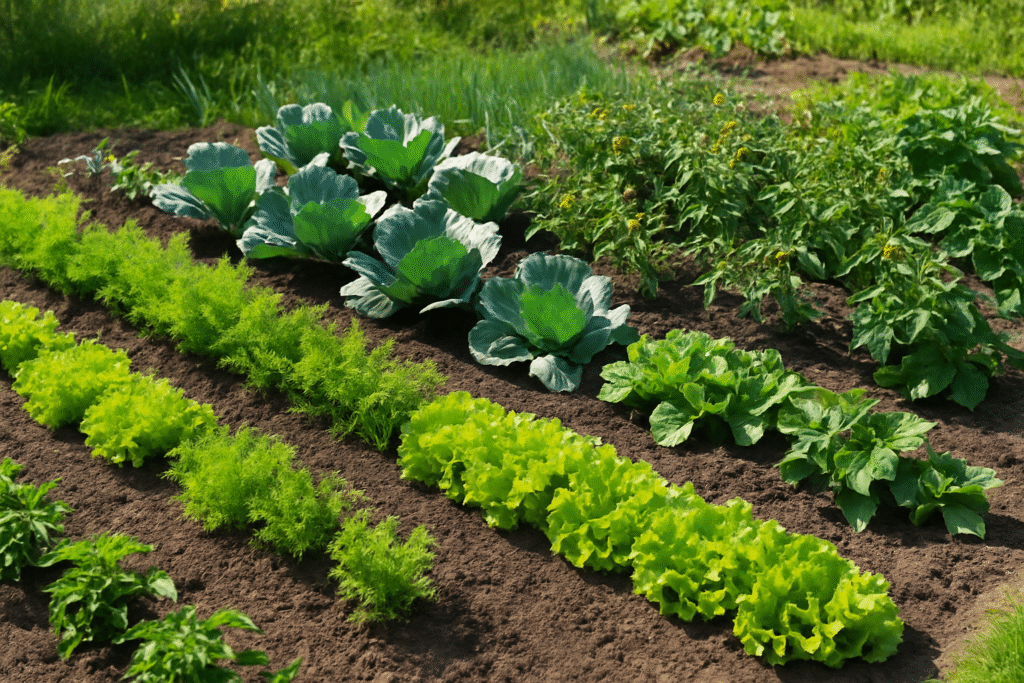
Every gardener has dealt with pests at some point. Aphids, slugs, caterpillars—you name it, they can quickly turn your garden from paradise to frustration. But the solution isn’t always reaching for chemical pesticides.
There are natural, eco-friendly ways to keep pests out of your garden without harming your plants, pollinators, or the environment.
In this guide, I’ll show you safe, effective, and organic pest control methods that really work.
Why Choose Natural Pest Control?
Chemical pesticides might get rid of bugs fast, but they come with side effects:
- Chemical residues on vegetables and herbs
- Harm to pollinators like bees and butterflies
- Disruption of beneficial insect populations
- Soil health damage over time
Natural pest control keeps your garden safe, balanced, and thriving—just the way nature intended.
Common Garden Pests and What They Do
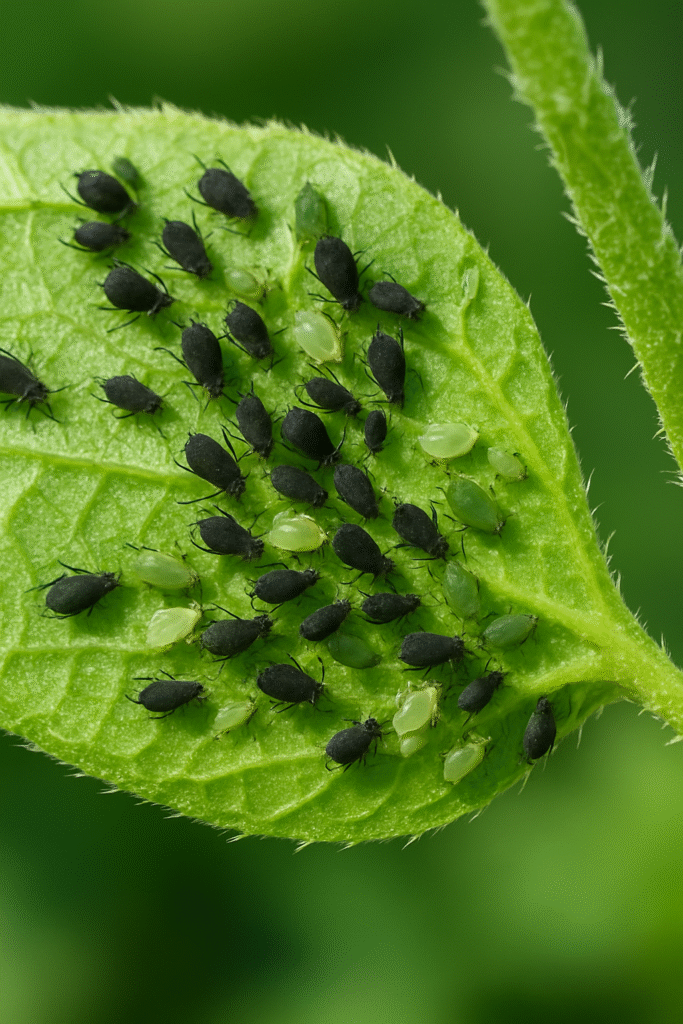
Knowing your enemy is half the battle. Here are the usual suspects:
- Aphids: Tiny sap-suckers that cause curled, yellowing leaves
- Slugs and Snails: Nighttime munchers of lettuce and young plants
- Caterpillars: Leaf chewers, especially on vegetables and flowers
- Whiteflies: Spread diseases and weaken plants by feeding on sap
- Spider Mites: Cause leaves to yellow and drop
- Cutworms & Beetles: Chop seedlings at the base and chew leaves
Natural Ways to Keep Pests Out of Your Garden
Let’s dive into some chemical-free pest control solutions:
1. Companion Planting
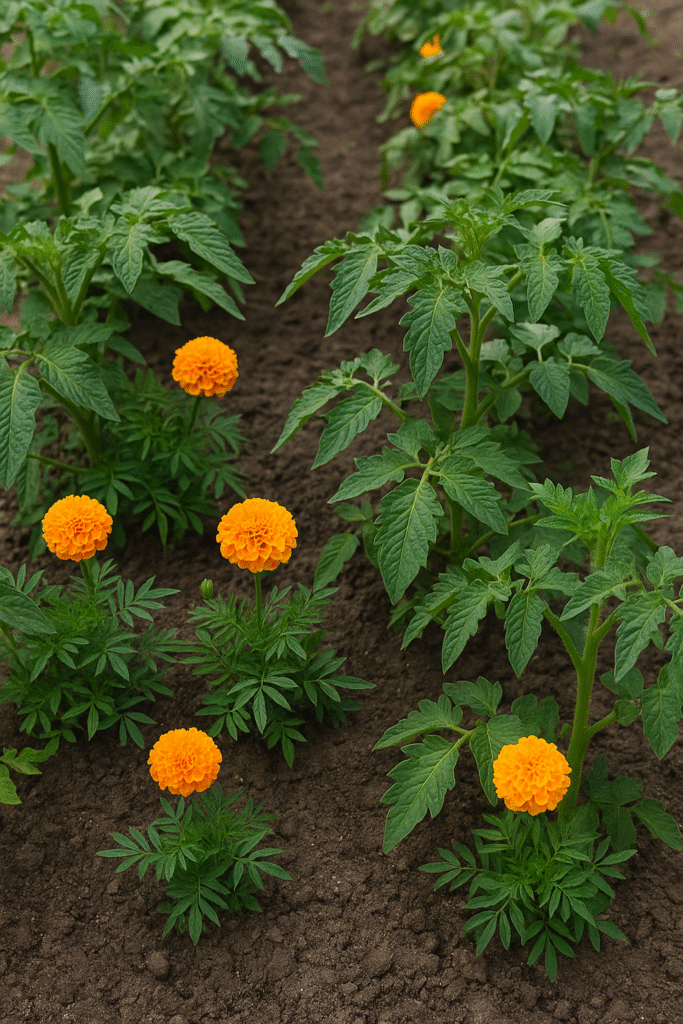
Some plants repel pests naturally. Plant these alongside your vegetables:
- Marigolds: Deter aphids, nematodes, and beetles
- Basil: Repels flies and mosquitoes
- Chives and Garlic: Drive away aphids and mites
- Mint: Keeps ants and aphids at bay (plant in containers to prevent spreading)
Companion planting also attracts beneficial insects that help control pests.
2. Homemade Natural Sprays
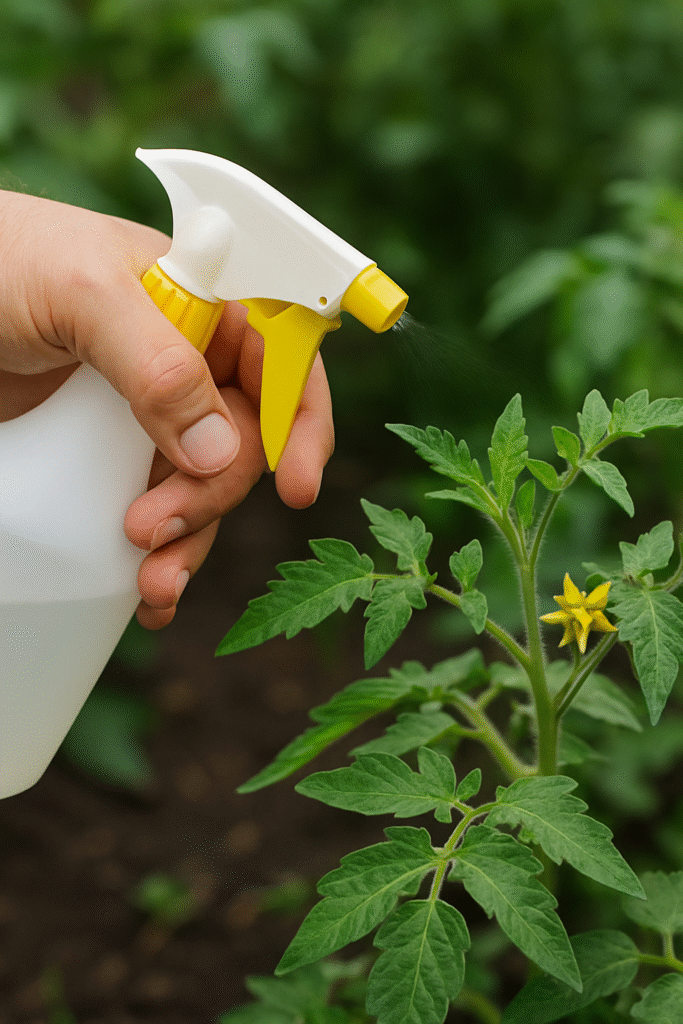
DIY sprays are simple and cost-effective:
- Garlic Spray: Blend garlic with water and a drop of mild soap. Spray on leaves to repel aphids and mites.
- Neem Oil: Mix with water and a bit of soap. It controls a wide range of garden pests naturally.
- Chili Pepper Spray: Keeps chewing insects away. Blend chili peppers with water and soap, then spray.
- Soap Spray: Use diluted castile soap to kill soft-bodied pests like aphids and whiteflies.
3. Physical Barriers
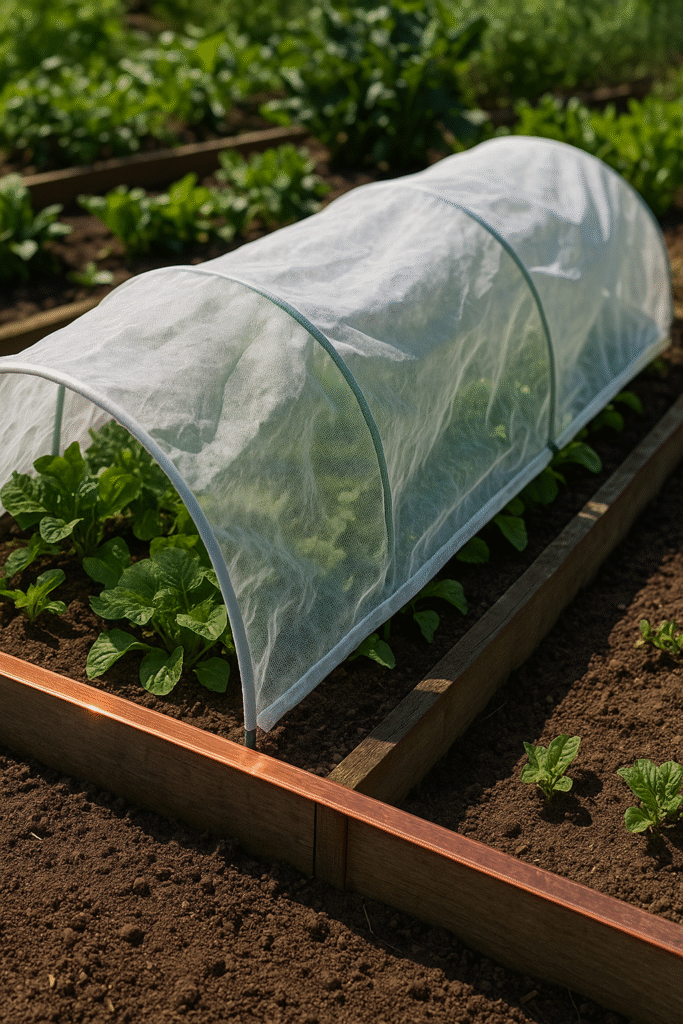
Sometimes the best defense is… a literal defense:
- Row Covers: Protect plants from flying insects while letting in sun and rain
- Copper Tape: Slugs and snails hate copper—it gives them a mild shock
- Eggshells or Diatomaceous Earth: Create sharp textures pests won’t cross
- Hand-Picking: Remove caterpillars, beetles, and slugs by hand during daily garden walks
4. Encourage Natural Predators
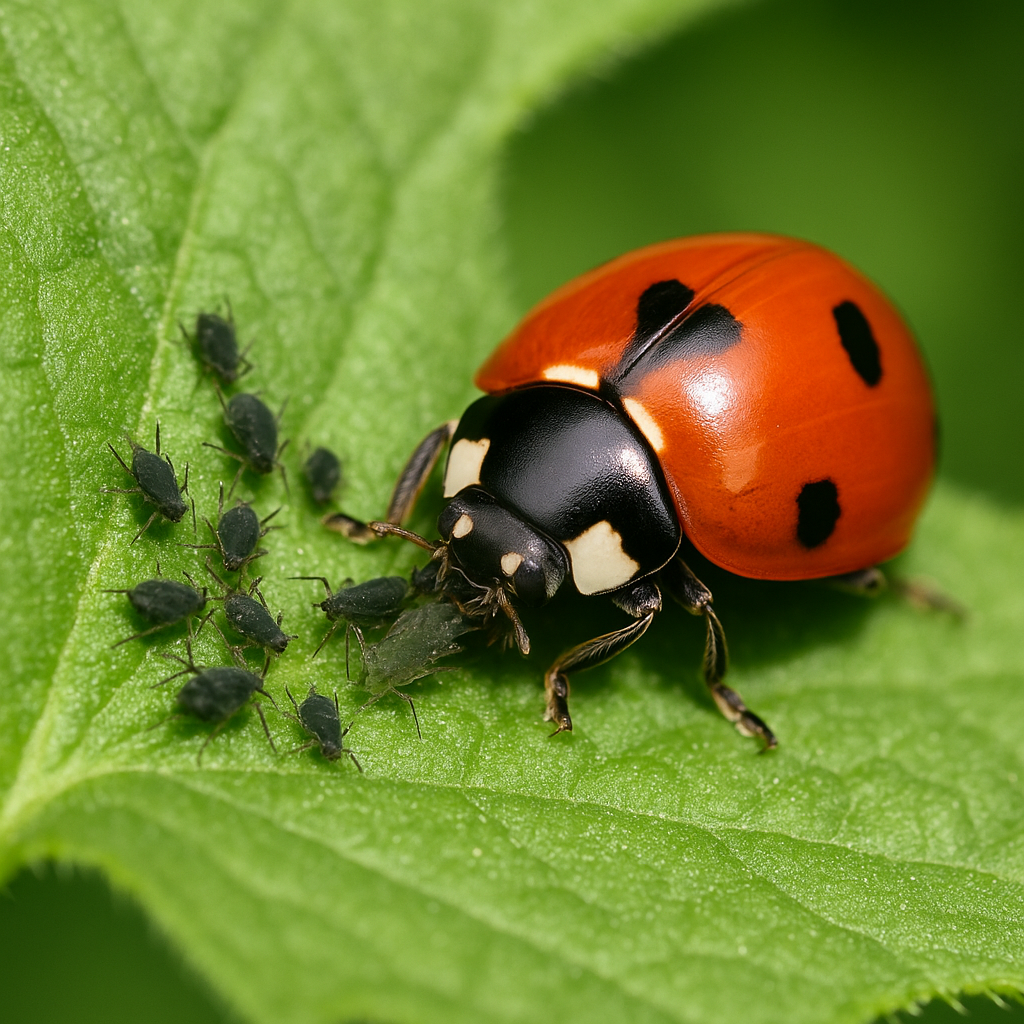
Your garden’s best allies are the predators that feed on pests:
- Ladybugs: Love eating aphids
- Lacewings: Feed on mites and small insects
- Birds: Eat beetles and caterpillars
- Frogs and Toads: Control slugs and other small pests
Attract these helpers by planting native flowers, installing bird feeders, and leaving water sources like shallow dishes.
5. Maintain Garden Hygiene & Use Crop Rotation
Good garden habits reduce pest problems:
- Clean up plant debris—pests love hiding in old leaves
- Rotate crops each year to prevent pest build-up
- Disinfect garden tools to avoid spreading diseases and pests
6. Plant Pest-Resistant Varieties
Some plants naturally resist pests better than others:
- Nasturtiums: Act as a trap crop for aphids
- Herbs: Strong-scented herbs like rosemary and sage repel many insects
- Disease-resistant vegetable varieties are available at most nurseries
Common Mistakes to Avoid
Even with natural pest control, it’s easy to make mistakes. Watch out for:
- Over-spraying natural solutions, which can harm beneficial insects too
- Ignoring plant spacing, which creates humid conditions perfect for pests
- Skipping regular checks—early detection is key to control
- Using one method only—combine techniques for the best results
Final Tips for a Pest-Free Garden
- Inspect plants regularly—look under leaves and near soil
- Rotate and diversify plants to avoid pest build-up
- Encourage beneficial wildlife to create a balanced ecosystem
- Be patient—natural pest control is about prevention and long-term success
Conclusion
Gardening without chemicals is possible—and rewarding! By using natural ways to keep pests out of your garden, you’ll protect your plants while supporting pollinators, pets, and the planet.
Start small, try a few of these methods, and watch your garden flourish the eco-friendly way.
Have a favorite natural pest control trick? Share it in the comments—I’d love to hear about it!
One Comment